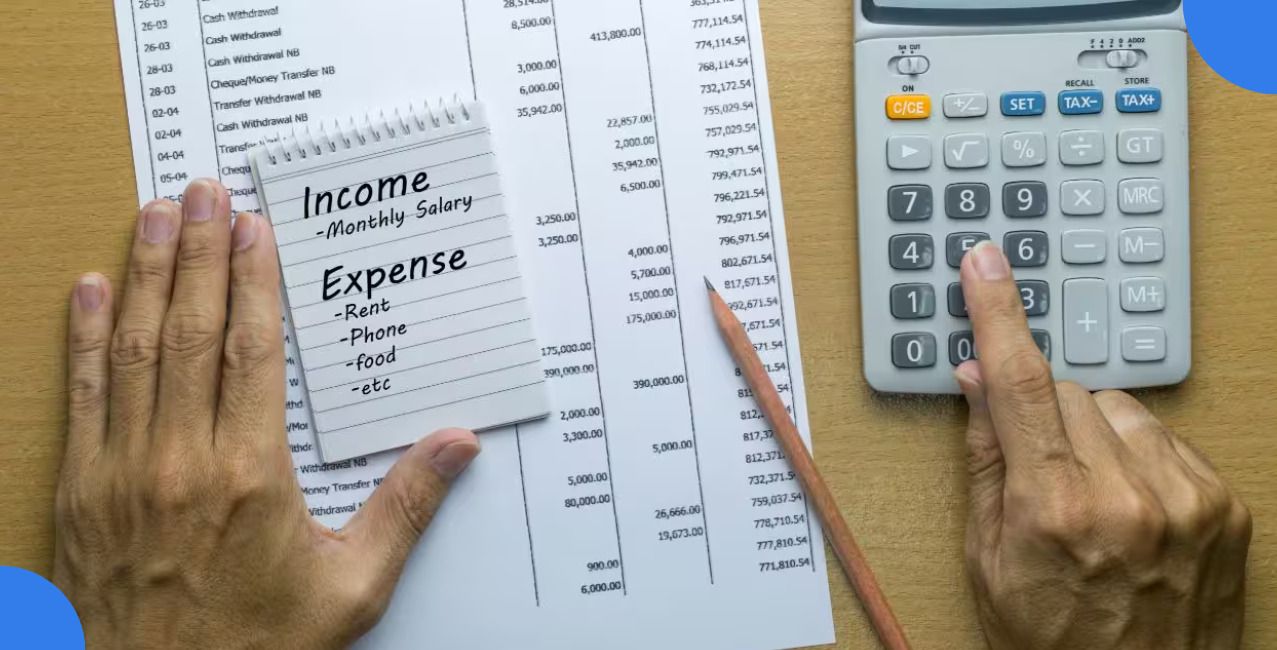What is a clearing house – Role in Trade Settlement and Risk Reduction

Check Your Loan Eligibility Now
By continuing, you agree to LoansJagat's Credit Report Terms of Use, Terms and Conditions, Privacy Policy, and authorize contact via Call, SMS, Email, or WhatsApp
A clearing house functions similarly to an intermediary in trade. It ensures that no one defrauds and that buyers and sellers receive what they promised.
Manish wants to buy shares from Ritu. You both agree on a deal, but how do you trust each other? The clearing house steps in:
- Manish promises to pay ₹10,000 for 10 shares.
- Ritu promises to give 10 shares once he gets the money.
- The clearing house holds Manish’s money and Ritu's shares until the trade is done.
- Once confirmed, it gives Manish the shares and Ritu the ₹10,000.
Understanding Clearing Houses with a Simple Table
Below is a table to explain how a clearing house works in simple terms:
This table helps you see how the clearing house ensures fairness.
This process acts as a trusted middleman, making sure that everyone is safe and treated fairly. It gives both the buyer and seller confidence that they will get what they agreed to. This article helps you understand what a clearing house is and why it matters.
Read More – What is the Stock Exchange? Meaning, Role & Major Exchanges in India
How Clearing Houses Work in Trade Settlements
A clearing house makes sure that transactions between buyers and sellers go smoothly. It serves as an intermediary, ensuring that both parties fulfil their commitments.
Example: Akash and Amber’s Futures Trade
Akash (buyer) agrees to buy 10 futures contracts of Company X at ₹5,000 each (total ₹50,000) from Amber (seller). Without a clearing house:
- Risk: Akash might refuse to pay later, or Amber might not deliver.
- Solution: The clearing house steps in to guarantee the trade.
Step-by-Step Process:
- Trade Agreement
- Akash (buyer) and Amber (seller) agree on 10 futures contracts at ₹5,000 each.
- The stock exchange records the deal.
- Clearing House Takes Over
- The clearing house becomes the secret guarantor for both:
- It promises Akash that he’ll get his contracts.
- It promises Amber that she’ll get her ₹50,000.
- The clearing house becomes the secret guarantor for both:
- Margin Money Deposit
- Both must deposit margin money (a safety deposit).
- Akash pays ₹5,000 (10% of ₹50,000).
- Amber also pays ₹5,000.
- Daily Settlement (Marking to Market)
- If Company X’s price rises to ₹5,200:
- Akash gains ₹2,000 (₹200 x 10 contracts).
- Amber loses ₹2,000.
- The clearing house adjusts its accounts daily.
- If Company X’s price rises to ₹5,200:
- Final Settlement
- On expiry day:
- If the price is ₹5,300:
- Akash gets ₹3,000 profit (₹300 x 10).
- Amber loses ₹3,000.
The clearing house ensures Akash gets his profit and Amber pays her loss.
- Clearing Fee
- The clearing house charges a small fee (e.g., ₹10 per contract).
- Akash and Amber each pay ₹100 (₹10 x 10 contracts).
Simplified Table: Clearing House’s Role
This table shows you the clearing house role.
This table helps you see how the clearing house protects both traders.
Clearing houses ensure that transactions take place securely and fairly. Without them, Akash and Amber couldn’t trust each other. They maintain the market's seamless operation by charging small fees, holding margin money, and adjusting daily profits and losses.
Risk Reduction by Clearing Houses
If the other party fails, a clearing house protects traders from financial loss. It serves as a security, ensuring that all parties fulfil their commitments in transactions.
Example: Mohit's Options Trade
Mohit purchases five call options for Company Y from an alien trader named Zyx for ₹200 each, for a total of ₹1,000.
- Risk: Zyx might disappear without giving Mohit his options.
- Solution: The clearing house becomes the guarantor, ensuring Mohit gets his options and Zyx gets paid.
Also Read - What is SEBI? Role, Powers & Importance in Indian Financial Markets
How Clearing Houses Reduce Risk:
- Becoming the Middleman
- The clearing house stands between Mohit and Zyx.
- Mohit deals only with the clearing house, not directly with Zyx.
- Margin Money Safety
- Both must deposit margin money (security deposit).
- Mohit pays ₹200 (20% of ₹1,000).
- Zyx also pays ₹200.
- If either fails, the clearing house uses this money to cover losses.
- Daily Settlement (No Surprises)
- If Company Y’s price rises, Mohit’s profit increases daily.
- If it falls, Zyx’s loss is adjusted immediately.
- No one waits till the end to know if they owe money.
- Netting (Fewer Transactions, Less Risk)
- Instead of settling every trade separately, the clearing house combines them.
- Example: If Mohit also sells three options to Zyx, only the net difference (2 possibilities) is settled.
- Default Protection
- If Zyx disappears, the clearing house:
- Uses Zyx’s margin money first.
- Then uses a pooled emergency fund from all traders.
- Mohit still gets his options safely.
- If Zyx disappears, the clearing house:
Clearing houses help traders like Mohit and Zyx overcome trust issues. They maintain market stability by covering defaults, changing daily prices, and holding margin money.
Conclusion
In the financial markets, clearing houses serve as trustworthy referees, ensuring that every transaction is secure and fair for all parties. By keeping security deposits, adjusting profits and losses every day, and getting in when someone is unable to pay, they shield traders like Mohit from risks.
Without a clearing house, trading would be risky and unpredictable, like playing a game without rules. They maintain that markets function smoothly, so that traders can trade with confidence by controlling risks and ensuring transactions.
Clearing houses operate behind the scenes to make sure everyone abides by the rules and receives what is rightfully theirs, whether you're dealing with stocks, options, or futures.
FAQs
What happens if a trader can't pay?
The clearing house uses its margin money first, then taps into a safety fund to cover losses.
Do I pay extra fees for using a clearinghouse?
Yes, a small clearing fee is charged per trade (like ₹10-20 for stocks).
Can the clearing house itself fail?
Very rare, they keep backup funds and have strict rules to stay secure.
Who owns and runs clearing houses?
Usually, big financial institutions or the stock exchange itself manage them.
How quickly does the clearing house settle my trade?
Most equity trades settle in 2 days (T+2), while derivatives settle daily.
Why do I need to deposit margin money?
It acts like a safety deposit in case your trade loses money suddenly.
Can I trade directly without a clearing house?
No, exchanges require clearing houses for safety in all official trades.
What’s the difference between clearing and settlement?
Clearing checks the trade details first, then settlement moves money/shares.
Does the clearing house decide stock prices?
No, prices come from buyers/sellers; the clearing house just secures the trade.
What if there’s an error in my trade settlement?
Contact your broker immediately; clearing houses have processes to fix mistakes.
Other Related Pages | |||
About the author

LoansJagat Team
Contributor‘Simplify Finance for Everyone.’ This is the common goal of our team, as we try to explain any topic with relatable examples. From personal to business finance, managing EMIs to becoming debt-free, we do extensive research on each and every parameter, so you don’t have to. Scroll up and have a look at what 15+ years of experience in the BFSI sector looks like.
Subscribe Now
Related Blog Post

Salaried vs. Self-Employed: Who Gets a Personal Loan Faster in 2025?

Too Many EMIs? What to Do When Monthly Payments Become Unmanageable

Post Office Customer Care Number: Helpline & Support
Recent Blogs
All Topics
Contents
Quick Apply Loan
Consolidate your debts into one easy EMI.
Takes less than 2 minutes. No paperwork.
10 Lakhs+
Trusted Customers
2000 Cr+
Loans Disbursed
4.7/5
Google Reviews
20+
Banks & NBFCs Offers
Other services mentioned in this article





